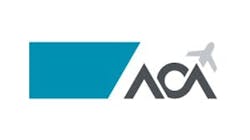ACA Warns of Adverse Consequences from Proposed Tariffs on Inflight Catering
The Airline Catering Association (ACA) has expressed deep concern over the Trump
administration’s recently proposed tariff measures targeting key supplies for the inflight catering industry.
If enacted, these duties would force caterers to pass on significantly higher costs to airlines – further straining air transport at a time when both carriers and travelers are still recovering from pandemi-related challenges.
“Inflight catering is the unseen backbone of the passenger experience,” said Fabio Gamba, managing director of the ACA. “Tariffs on food ingredients, packaging materials and specialized equipment will undoubtedly drive up ticket fares and onboard service costs. This approach risks undermining consumer confidence in air travel, and lead to a reduction in bookings which in turn will jeopardize tens of thousands of catering jobs worldwide. The sheer announcement of these tariffs is already affecting some of our members, confronted as they are today to cancelled transborder routes, blocked access to key U.S.-based suppliers, and a shift toward more costly alternatives.”
If implemented, the proposed tariffs will have direct consequences on sectors that weren’t supposed to be impacted originally and will imply knock-on effects on the whole air transport sector.
- Escalating supply costs: Imported goods such as specialized aluminum trays, high-grade
plastics and gourmet foodstuffs make up 40% of typical catering supply budgets. Tariffs of 10 to 25% would push these costs up by nearly $200 million industry-wide in the first year alone. - Higher fares and fees: Airlines operate on razor-thin margins. Even a modest catering cost increase of just $1.50 per passenger can translate into a surcharge of up to $5 on ticket prices.
- Service reductions & job losses: To absorb price shocks, some caterers will be forced to
streamline menus, cut staff or consolidate kitchens – degrading onboard service and community employment.
“Rather than safeguarding American industry, these tariffs threaten to cripple one of the fastest-growing segments of our travel economy,” added Gamba. “We urge the administration to engage with stakeholders in a constructive dialogue before moving forward. Our doors are open – let us pursue smarter, targeted solutions that strengthen U.S. competitiveness without penalizing travelers or carriers.”
